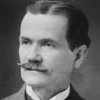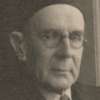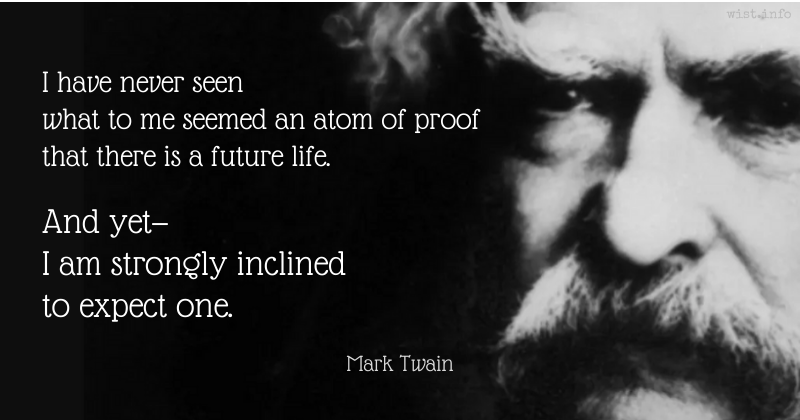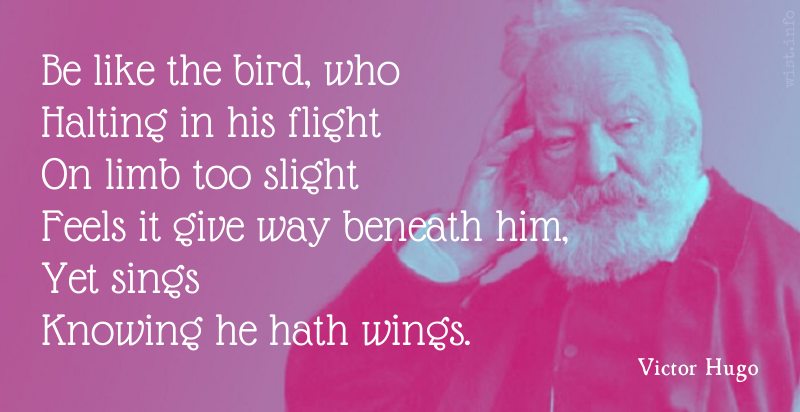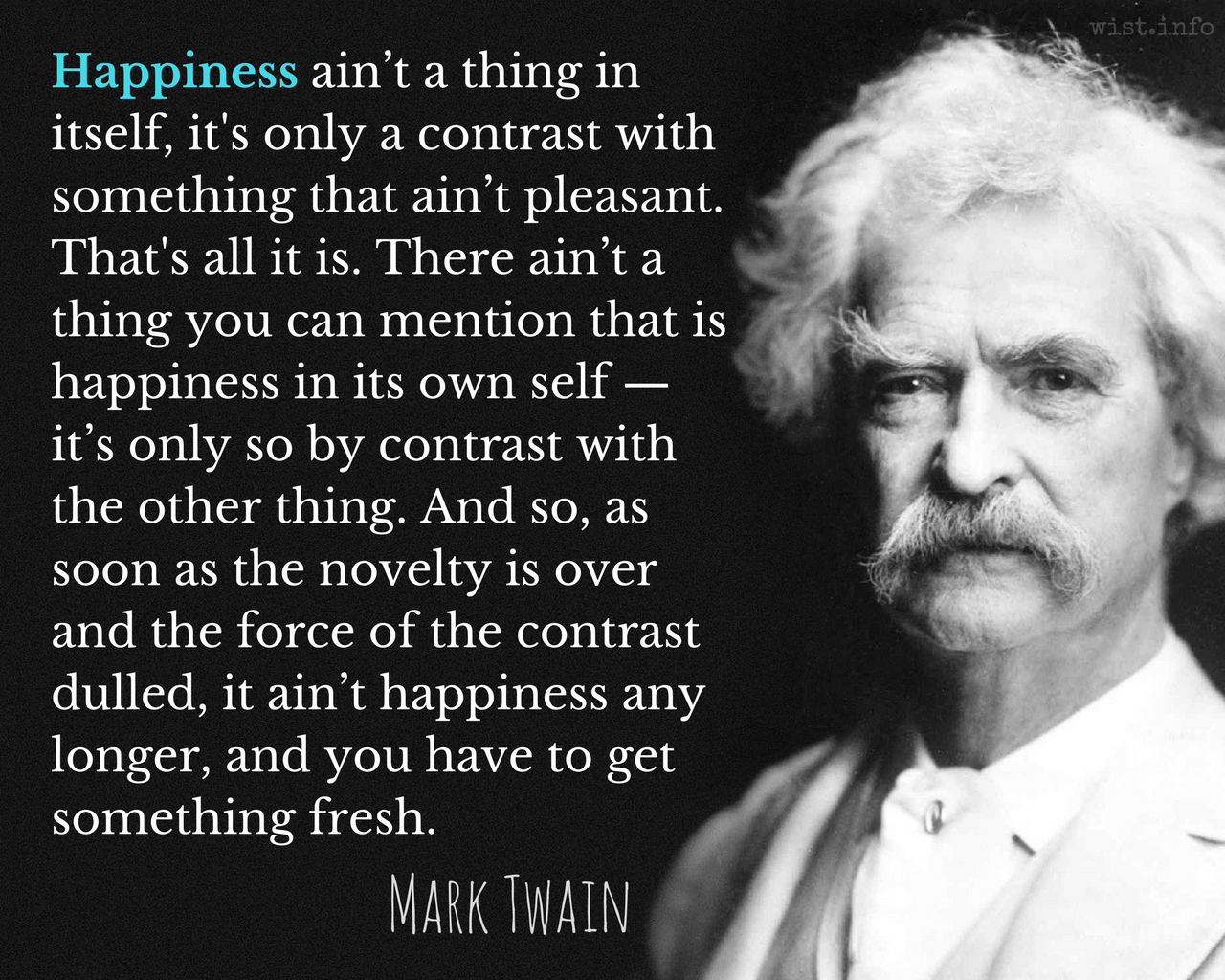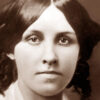AMYRUS: Let Earth and Heaven his timeless death deplore,
For both their worths shall equal him no more.Christopher "Kit" Marlowe (1564-1593) English dramatist and poet
Tamburlaine the Great, Part 2, Act 5, sc. 3 (c. 1587)
Final lines of the play. More on Timur (Tamerlane, Tamburlaine).
Quotations about:
heaven
Note not all quotations have been tagged, so Search may find additional quotes on this topic.
Heaven alone can produce devout people; Princes produce hypocrites.
[Le Ciel seul peut faire les dévots; les Princes font les hypocrites.]
Charles-Lewis de Secondat, Baron de Montesquieu (1689-1755) French political philosopher
Pensées Diverses [Assorted Thoughts], # 630 / 1007 “General Maxims of Politics,” No. 10 (1720-1755) [tr. Clark (2012)]
(Source)
In the French, "seul [alone, solely]" is an amendment above the line in manuscript.(Source (French)).
But a normal human being does not want the Kingdom of Heaven: he wants life on earth to continue. This is not solely because he is “weak”, “sinful” and anxious for a “good time”. Most people get a fair amount of fun out of their lives, but on balance life is suffering, and only the very young or the very foolish imagine otherwise. Ultimately it is the Christian attitude which is self-interested and hedonistic, since the aim is always to get away from the painful struggle of earthly life and find eternal peace in some kind of Heaven or Nirvana. The humanist attitude is that the struggle must continue and that death is the price of life.
A love of heavenly beauty does not preclude
A proper love for earthly pulchritude.[L’amour qui nous attache aux beautés éternelles
N’étouffe pas en nous l’amour des temporelles.]Molière (1622-1673) French playwright, actor [stage name for Jean-Baptiste Poquelin]
Tartuffe, or the Hypocrite [Le Tartuffe, ou L’Imposteur], Act 3, sc. 3 (1669) [tr. Wilbur (1963)]
(Source)
When Elmire suggests that the (falsely) pious Tartuffe must surely be focused solely on Heaven.
(Source (French)). Alternate translations:The Love which engages us to eternal Beauties, does not extinguish in us the Love of temporal ones.
[tr. Clitandre (1672)]The love which attaches us to eternal beauties does not stifle in us the love of earthly things.
[tr. Van Laun (1876)]Our love for the beauty which is eternal, stifles not in us love for that which is fleeting and temporal.
[tr. Wall (1879)]The love which leads us to eternal beauties does not extinguish in us the love of temporal ones.
[tr. Mathew (1890)]Our love for the beauty which is eternal does not stifle in us the love for things fleeting.
[tr. Waller (1903)]Love for the beauty of eternal things
Cannot destroy our love for earthly beauty.
[tr. Page (1909)]The love which draws us to eternal beauty
Does not exclude the love of temporal things.
[tr. Bishop (1957)]To love eternal beauties far above
Is not to be immune to other love.
[tr. Frame (1967)]The love that draws us to eternal beauty does not stifle love of this world.
[tr. Steiner (2008)]The love that binds us to eternal beauties
Does not entirely stifle in us the love of temporal.
[tr. Campbell (2013)]
Go to! Cast dust on those deaf skies, who spurn
Thy orisons and bootless prayers, and learn
To quaff the cup, and hover round the fair;
Of all who go, did ever one return?Omar Khayyám (1048-1123) Persian poet, mathematician, philosopher, astronomer [عمر خیام]
Rubáiyát [رباعیات], Bod. # 97 [tr. Whinfield (1883), # 267]
(Source)
Given as # 149 in Whinfield's 1882 edition. Calcutta manuscript # 271. Alternate translations:Behold the dawn arise, O fountain of delights. Drink your wine and touch your lute, for the life of those who sleep will be but brief; and of those who have gone hence, not one will e'er return.
[tr. McCarthy (1879), # 44]Go, on the earth and the heavens cast dust and all their care;
Drink wine and follow the trace of the pleasant-visaged fair.
Where is the good of obedience? Where is the profit of prayer?
Of all that have gone before us, there's none returneth e'er.
[tr. Payne (1898), # 463]Go! throw dust upon the face of the heavens,
drink wine, and consort with the fair of face;
what time is this for worship? and what time is this for supplication?
since, of all those that have departed, not one has returned?
[tr. Heron-Allen (1898), # 97]Go, thou, cast dust on the heaven above us,
Drink ye wine, and beauty seek today!
What use in adoration? What need for prayer?
For of all the gone no one comes again.
[tr. Cadell, after Nicholas (1879), # 228]Go then, cast dust on heaven's sapphire stair,
Drink wine, love beauty, in this world of men.
What place for pious deeds? What need for prayer?
Of the departed, none comes back again.
[tr. Cadell (1899), # 105]Go! On earth's face, in Heaven's face high in air
Flung dust, drink wine and woo the sweet-faced fair!
What time is there for worship? What for prayer?
For none of all those gone returneth e'er.
[tr. Thompson (1906), # 312]Fling dust at heaven, that every offering spurns;
Drink wine, and love while thy desire yet burns;
What time is this to worship or to pray?
Of all that have departed, none returns.
[tr. Talbot (1908), # 97]Go! throw dust upon the head of the heavens and the
world. Drink ever wine and hover about the fair-faced ones.
What place is there for worship? what place for prayer?
for of all those who are gone not one has come back.
[tr. Christensen (1927), # 56]Go, throw dust on the Sphere of this world,
Drink wine and court those whose face is resplendent like the moon.
What place is this for worship and for prayer?
Since from all who have left no news returns.
[tr. Rosen (1928), # 174]Ascend the skies, fling the dust on earth, 'tis base,
Yea seek His love, and linger on His face.
Thy rites and prayers will not profit there,
The path you once have plied you can't retrace.
[tr. Tirtha (1941), # 3.49]
Do not store up riches for yourselves here on earth, where moths and rust destroy, and robbers break in and steal. Instead, store up riches for yourselves in heaven, where moths and rust cannot destroy, and robbers cannot break in and steal. For your heart will always be where your riches are.
[Μὴ θησαυρίζετε ὑμῖν θησαυροὺς ἐπὶ τῆς γῆς, ὅπου σὴς καὶ βρῶσις ἀφανίζει καὶ ὅπου κλέπται διορύσσουσιν καὶ κλέπτουσιν· θησαυρίζετε δὲ ὑμῖν θησαυροὺς ἐν οὐρανῷ, ὅπου οὔτε σὴς οὔτε βρῶσις ἀφανίζει καὶ ὅπου κλέπται οὐ διορύσσουσιν οὐδὲ κλέπτουσιν· ὅπου γάρ ἐστιν ὁ θησαυρός σου, ἐκεῖ ἔσται καὶ ἡ καρδία σου.]
The Bible (The New Testament) (AD 1st - 2nd C) Christian sacred scripture
Matthew 6: 19-21 (Jesus) [GNT (1966)]
(Source)
This passage is paralleled in Luke 12:33-34.
(Source (Greek)). Alternate translations:Lay not up for yourselves treasures upon earth, where moth and rust doth corrupt, and where thieves break through and steal: but lay up for yourselves treasures in heaven, where neither moth nor rust doth corrupt, and where thieves do not break through nor steal: for where your treasure is, there will your heart be also.
[KJV (1611)]Do not store up treasures for yourselves on earth, where moths and woodworms destroy them and thieves can break in and steal. But store up treasures for yourselves in heaven, where neither moth nor woodworms destroy them and thieves cannot break in and steal. For where your treasure is, there will your heart be also.
[JB (1966)]Do not store up treasures for yourselves on earth, where moth and woodworm destroy them and thieves can break in and steal. But store up treasures for yourselves in heaven, where neither moth nor woodworm destroys them and thieves cannot break in and steal. For wherever your treasure is, there will your heart be too.
[NJB (1985)]Stop collecting treasures for your own benefit on earth, where moth and rust eat them and where thieves break in and steal them. Instead, collect treasures for yourselves in heaven, where moth and rust don’t eat them and where thieves don’t break in and steal them. Where your treasure is, there your heart will be also.
[CEB (2011)]Do not store up for yourselves treasures on earth, where moth and rust consume and where thieves break in and steal, but store up for yourselves treasures in heaven, where neither moth nor rust consumes and where thieves do not break in and steal. For where your treasure is, there your heart will be also.
[NRSV (2021 ed.)]
ARTHUR: I don’t want to die now, I’ve still got a headache! I don’t want to go to heaven with a headache, I’d be all cross and wouldn’t enjoy it.
Douglas Adams (1952-2001) English author, humourist, screenwriter
Hitchhiker’s Guide to the Galaxy, Phase 1, “Fit the 2nd” (BBC radio) (1978-03-15)
(Source)
The adaptation into the original novelization, Hitchhiker's Guide to the Galaxy, ch. 7 (1979), is nearly the same:"I don't want to die now!" he yelled. "I've still got a headache! I don't want to go to heaven with a headache, I'd be all cross and wouldn't enjoy it!"
Hell is wherever Love is not, and Heaven
Is Love’s location. No dogmatic creed,
No austere faith based on ignoble fear
Can lead thee into realms of joy and peace.
Unless the humblest creatures on the earth
Are bettered by thy loving sympathy
Think not to find a Paradise beyond.There is no sudden entrance into Heaven.
Slow is the ascent by the path of Love.Ella Wheeler Wilcox (1850-1919) American author, poet, temperance advocate, spiritualist
Poem (1906), “The Way,” ll. 5-13, New Thought Pastels
(Source)
Be mersiphull to all the dum animals — no man can ride into heaven, on a sore-backed horse.
[Be merciful to all the dumb animals — no man can ride into heaven on a sore-backed horse.]
Josh Billings (1818-1885) American humorist, aphorist [pseud. of Henry Wheeler Shaw]
Josh Billings’ Trump Kards, ch. 11 “The Mermaid” (1874)
(Source)
Thoze people who are trieing to git to heaven on their kreed will find out at last that they didn’t hav a thru ticket.
[Those people who are trying to get to heaven on their creed will find out at last that they didn’t have a through ticket.]
Josh Billings (1818-1885) American humorist, aphorist [pseud. of Henry Wheeler Shaw]
Josh Billings’ Trump Kards, ch. 9 “The Ram and Crawfish” (1874)
(Source)
The barbaric world was to be rewarded in some other world for acting sensibly in this. They were promised rewards in another world, if they would only have self-denial enough to be virtuous in this. If they would forego the pleasures of larceny and murder; if they would forego the thrill and bliss of meanness here, they would be rewarded hereafter for that self-denial. I have exactly the opposite idea. Do right, not to deny yourself, but because you love yourself and because you love others. Be generous, because it is better for you. Be just, because any other course is the suicide of the soul. Whoever does wrong plagues himself, and when he reaps that harvest, he will find that he was not practicing self-denial when he did right.
Robert Green Ingersoll (1833-1899) American lawyer, freethinker, orator
Speech (1886-11-14), “A Lay Sermon,” American Secular Union annual congress, Chickering Hall, New York City
(Source)
During one Lent a youthful vicar came to preach in the cathedral at Digne and did so with some eloquence. His theme was charity. He urged the rich to give to the poor so that they might escape the torments of Hell, which he depicted in hideous terms, and attain to Paradise, which he made to sound altogether delightful, Among the congregation was a Monsieur Geborand, a wealthy and grasping retired merchant, who had made a fortune in the cloth-trade but had never been known to give anything to the poor. It was observed, after this sermon, that on Sundays he handed a single sou to the old beggar-women clustered outside the cathedral door. There were six of them to share it. Noting the event, the bishop smiled and said to his sister: “Monsieur Geborand is buying a penny-worth of Paradise.”
[Pendant un carême, un jeune vicaire vint à Digne et prêcha dans la cathédrale. Il fut assez éloquent. Le sujet de son sermon était la charité. Il invita les riches à donner aux indigents, afin d’éviter l’enfer, qu’il peignit le plus effroyable qu’il put, et de gagner le paradis, qu’il fit désirable et charmant. Il y avait dans l’auditoire un riche marchand retiré, un peu usurier, nommé M. Géborand, lequel avait gagné deux millions à fabriquer de gros draps, des serges, des cadis et des gasquets. De sa vie M. Géborand n’avait fait l’aumône à un malheureux. À partir de ce sermon, on remarqua qu’il donnait tous les dimanches un sou aux vieilles mendiantes du portail de la cathédrale. Elles étaient six à se partager cela. Un jour, l’évêque le vit faisant sa charité et dit à sa sœur avec un sourire : — Voilà monsieur Géborand qui achète pour un sou de paradis.]
Victor Hugo (1802-1885) French writer
Les Misérables, Part 1 “Fantine,” Book 1 “An Upright Man,” ch. 4 (1.1.4) (1862) [tr. Denny (1976)]
(Source)
(Source (French)). Alternate translations:Once, during Lent, a young vicar came to D---, and preached in the cathedral. The subject of his sermon was charity, and he treated it very eloquently. He called upon the rich to give alms to the poor, if they would escape the tortures of hell, which he pictured in the most fearful colours, and enter that paradise which he painted as so desirable and inviting. There was a retired merchant of wealth in the audience, a little given to usury, M. Geborand, who had accumulated an estate of two millions in the manufacture of coarse cloths and serges. Never, in the whole course of his life, had M. Geborand given alms to the unfortunate ; but from the date of this sermon it was noticed that he gave regularly, every Sunday, a penny to the old beggar women at the door of the cathedral. There were six of them to share it. The bishop chanced to see him one day, as he was performing this act of charity, and said to his sister, with a smile, “See Monsieur Geborand, buying a pennyworth of paradise.”
[tr. Wilbour (1862)]During one Lent a young vicar came to D.... and preached at the cathedral. He was rather eloquent, and the subject of his sermon was charity. He invited the rich to give to the needy in order to escape hell, which he painted in the most frightful way he could, and reach paradise, which he made desirable and charming. There was among the congregation a rich retired merchant, somewhat of an usurer, who had acquired $400,000 by manufacturing coarse cloths, serges, and caddis. In his whole lifetime M. Géborand had never given alms to a beggar, but after this sermon it was remarked that he gave every Sunday a cent to the old beggars at the cathedral gate. There were six women to share it. One day the bishop saw him bestowing his charity, and said to his sister, with a smile, “Look at M. Géborand buying a bit of paradise for a cent.”
[tr. Wraxall (1862)]In the course of one Lent, a youthful vicar came to Digne, and preached in the cathedral. He was tolerably eloquent. The subject of his sermon was charity. He urged the rich to give to the poor, in order to avoid hell, which he depicted in the most frightful manner of which he was capable, and to win paradise, which he represented as charming and desirable. Among the audience there was a wealthy retired merchant, who was somewhat of a usurer, named M. Geborand, who had amassed two millions in the manufacture of coarse cloth, serges, and woolen galloons. Never in his whole life had M. Geborand bestowed alms on any poor wretch. After the delivery of that sermon, it was observed that he gave a sou every Sunday to the poor old beggar-women at the door of the cathedral. There were six of them to share it. One day the Bishop caught sight of him in the act of bestowing this charity, and said to his sister, with a smile, "There is M. Geborand purchasing paradise for a sou."
[tr. Hapgood (1887)]Once, during Lent, a young vicar came to Digne, and preached in the cathedral. The subject of his sermon was charity, and he treated it very eloquently. He called upon the rich to give alms to the poor, if they were to escape the tortures of hell, which he pictured in the most fearful colors, and enter paradise, which he portrayed as desirable and inviting. There was a wealthy retired merchant at the service, somewhat inclined to usury, a M. Geborand, who had accumulated an estate of two million from manufacturing coarse cloth and woolens. Never in all his life had M. Geborand given alms to the unfortunate; but from the day of this sermon it was noticed that regularly every Sunday he gave a penny to the old beggar women at the door of the cathedral. There were six of them to share it. One day the bishop, seeing him perform this act of charity, said to his sister with a smile, 'There's Monsieur Geborand, buying a pennyworth of paradise."
[tr. Wilbour/Fahnestock/MacAfee (1987)]Once, during Lent, a young vicar came to Digne and preached in the cathedral. He was quite eloquent. The subject of his sermon was charity. He urged the rich to give to the poor so to as avoid going to hell, which he depicted in the most dreadful terms he could, and to get to parasdise, which he represented as desirable and delightful. Among hsi audience was a somewhat tight-fisted retired wealthy merchant named Monsieur Géborand, who had amassed half a million in the manufacture of coarse cloth, serge, caddis and felt caps. Monsieur Géborand had never in his life been charitable to any poor unfortunate. After that sermon it was noticed he gave one sou every Sunday to the old beggar-women at the cathedral door. They had to share it between six of them. One day the bishop saw him making his donation and said to his sister with a smile, "There's Monsieur Géborand buying one sou's worth of paradise."
[tr. Donougher (2013)]
Eternal torment some sour wits foretell
For those who follow wine and love too well, —
Fear not, for God were left alone in Heaven
If all the lovely lovers burnt in hell.Omar Khayyám (1048-1123) Persian poet, mathematician, philosopher, astronomer [عمر خیام]
Rubáiyát [رباعیات], Bod. # 127 [tr. Le Gallienne (1897)]
(Source)
I am fairly certain I am conflating two different quatrains below, Bodleian 127 (which mentions hypocrisy in the second line), and one not found in that manuscript (see the Whinfield translations). But both conclude with the sentiment that if lovers and drinkers are to be sent to Hell, then Heaven will be empty. Further discernment is left as an exercise for the reader.
This quatrain(s) is also unique in FitzGerald only offering a single go at translation, and that in just the 2nd ed.
Alternate translations:If but the Vine and Love-abjuring Band
Are in the Prophet's Paradise to stand,
Alack, I doubt the Prophet's Paradise
Were empty as the hollow of one's hand.
[tr. FitzGerald, 2nd Ed (1868), # 65; this does not appear in other editions before or after]Folk say that there is a hell. This is a vain error, in which no trust should be placed, for if there were a hell for lovers and for bibbers of wine, why heaven would be, from to-morrow morn, as empty as the hollow of my hand.
[tr. McCarthy (1879), # 131]If wine be an unpardonable sin,
God help Khayyam and his wine-bibbing kin!
If all poor drouthy souls be lodged elsewhere,
Heaven's plains must be as bare as maiden's chin.
[tr. Whinfield (1882), # 33]Drunkards are doomed to hell, so men declare,
Believe it not, 'tis but a foolish scare;
Heaven will be empty as this hand of mine,
If none who love good drink find entrance there.
[tr. Whinfield (1883), # 67]To drain the cup, to hover round the fair,
Can hypocritic arts with these compare?
If all who love and drink are going wrong,
There's many a wight of heaven may well despair!
[tr. Winfield (1883), #381]With Tales of future pains men threaten me,
They say there is a Hell in store for thee; --
Love, if there is a Hell for all like us,
Their Heaven as empty as my Palm will be.
[tr. Garner (1887), 1.19]To drink wine and consort with a company of the beautiful
is better than practising the hypocrisy of the zealot;
if the lover and the drunkard are doomed to hell,
then no one will see the face of heaven.
[tr. Heron-Allen (1898), # 127]Better to drink, with fair maids wander free.
Than in deceit to practice piety;
If sots and lovers all in Hell will be.
Then who would wish the face of Heaven to see?
[tr. Thompson (1906), # 425]Tis better here with Love and Wine to sit
Than to become the zealous hypocrite;
If all who love or drink are doom'd to Hell,
On whom shall Heaven bestow a benefit?
[tr. Talbot (1908), # 127]Drinking wine and wooing fair ones
Is a better thing than the hypocrisy of fanatics.
If all who drink wine were to go to Hell
No one would then behold Paradise.
[tr. Rosen (1928), # 256]Better to drink and dance with rosy fairs,
Than cheat the folk with doubtful pious wares;
Tho' drunkards, so they say, are doomed to hell,
To go to heaven with cheats who ever cares?
[tr. Tirtha (1941), # 10.88]They say lovers and drunkards go to hell,
A controversial dictum not easy to accept:
If the lover and drunkard are for hell,
Tomorrow Paradise will be empty.
[tr. Avery/Heath-Stubbs (1979), # 87]
Is there else a Heavenly power
That grants to men so sweet an hour?[Quid datur a divis felici optatius hora?]
Catullus (c. 84 BC – c. 54 BC) Latin poet [Gaius Valerius Catullus]
Carmina # 62 “Nuptual Song,” st. 5, l. 40 [Youths] [tr. Symons-Jeune (1923)]
(Source)
Singing to Hesperus, the Evening Star, in celebration of the hour of marriage. Or maybe the hour of the marriage bed; the translations are unclear.
(Source (Latin)). Alternate translations:Say, what more blissful can the gods bestow,
Than the fond hour that crowns each am'rous vow?
[tr. Nott (1795), # 59]What god can give, what proud celestial power,
A richer boon than thy connubial hour?
[tr. Lamb (1821)]What choicer hour sends heaven our life to cheer?
[tr. T. Martin (1861)]What by the gods to mortals given can match this blissful hour?
[tr. Cranstoun (1867)]When shone an happier hour than thy god-speeded arriving?
[tr. Ellis (1871)]What better boon can the gods bestow than hour so desirèd?
[tr. Burton (1893)]What more wished for do the gods give than that happy hour?
[tr. Smithers (1894)]What is given by the gods more desirable than the fortunate hour?
[tr. Warre Cornish (1904)]What hour happier than this glorious hour is given by the Gods?
[tr. Stuttaford (1912)]What gift of heaven excels the wishèd hour?
[tr. MacNaghten (1925)]Can Heaven give a greater boon than this?
[tr. Wright (1926)]What gift from heaven
greater than this gift from gods to man in a superlative hour of happiness?
[tr. Gregory (1931)]What gift from heaven surpasses this fortunate hour?
[tr. C. Martin (1979)]What gift of heaven is more desirable than this happy hour?
[tr. Goold (1983)]What wished-for hour by the gods is more happily granted?
[tr. Kline (2001)]What better gift have the gods than this most happy hour?
[tr. Green (2005)]What is given by the gods more desirable than the fortunate hour?
[tr. Wikisource (2018)]
HEAVEN, n. A place where the wicked cease from troubling you with talk of their personal affairs, and the good listen with attention while you expound your own.
Ambrose Bierce (1842-1914?) American writer and journalist
“Heaven,” The Cynic’s Word Book (1906)
(Source)
Included in The Devil's Dictionary (1911). Originally published in the "Devil's Dictionary" column in the San Francisco Wasp (1885-05-23).
There are depths in man that go the length of lowest Hell, as there are heights that reach highest Heaven; — for are not both Heaven and Hell made out of him, made by him, everlasting Miracle and Mystery as he is?
Thomas Carlyle (1795-1881) Scottish essayist and historian
The French Revolution: A History, Part 3, Book 1, ch. 4 (3.1.4) (1837)
(Source)
Regarding the events of 2 September 1792, and the Commune-ordered massacres of prisoners in the Paris prisons.
This passage was popularized in a slightly paraphrased form in Tryon Edwards, ed., A Dictionary of Thoughts (1891):There are depths in man that go to the lowest hell, and heights that reach the highest heaven, for are not both heaven and hell made out of him, everlasting miracle and mystery that he is.
The Edwards version was, in turn, quoted by Martin Luther King, Jr. in his Detroit sermon "The Christian Doctrine of Man" (1958-02-12).
I have seen descriptions of Paradise sufficient to make all sensible people give up their hopes of it: some make the happy shades play incessantly on the flute; others condemn them to the torture of an everlasting promenade; while others, who represent them as dreaming on high of their mistresses below, are of opinion that a period of a hundred millions years is not sufficient to overcome a taste for the pains of love.
[J’ai vu des descriptions du paradis, capables d’y faire renoncer tous les gens de bon sens: les uns font jouer sans cesse de la flûte ces ombres heureuses; d’autres les condamnent au supplice de se promener éternellement; d’autres enfin, qui les font rêver là-haut aux maîtresses d’ici-bas, n’ont pas cru que cent millions d’années fussent un terme assez long pour leur ôter le goût de ces inquiétudes amoureuses.]
Charles-Lewis de Secondat, Baron de Montesquieu (1689-1755) French political philosopher
Persian Letters [Lettres Persanes], Letter 126, Rica to *** (1721) [tr. Davidson (1891)]
(Source)
(Source (French)). Alternate translations:I have seen descriptions of paradise capable of disgusting all men of right understanding: some represent the happy shades incessantly playing on the flute: others condemn them to the punishment of eternally walking about: others again will have those above to be always musing on their mistresses here below, not thinking a hundred millions of years term long enough to make them lose the relish of these amorous inquietudes.
[tr. Ozell (1760 ed.), # 123]I have read descriptions of Paradise, capable of disgusting every sensible person. The happy shades, according to the fancy of some, are continually playing on the flute, others condemn them to the punishment of eternally walking about; others in short make those above to be always raving after their mistresses here below, not thinking a hundred millions of years long enough to make them get quit of their amorous inquietudes.
[tr. Floyd (1762), # 125]I have read descriptions of Paradise that would lead all sensible people to renounce it at once: some persons would have the happy shades play eternally on the flute; others condemn them to the torture of a never ending promenade; others who make them dream in heaven of their mistresses on earth, have expressed their belief that even a hundred millions of years would not be long enough to take from them the zest for amatory excitements.
[tr. Betts (1897), # 125]I have seen descriptions of paradise that would have made any sensible person reject it. Some would have the joyous shades play incessantly upon the flute; others would condemn them to the torture of an eternal promenade; others, who would have them dream on high of their mistresses down below, have assumed that even in a hundred million years they will not lose their taste for such uneasy affairs.
[tr. Healy (1964), # 125]I have seen descriptions of paradise that would make any man of sense avid going there. Some say the happy spirits in the afterlife engage in an endless bout of flute playing; others that it is an interminable walking about. Others depict them as endlessly dreaming about their mistresses down here, apparently thinking that a hundred million years is too short a time for us to lose our taste for these amorous adventures.
[tr. MacKenzie (2014)]
Within that heav’n which most receives His light
Was I, and saw such things as man nor knows
Nor skills to tell, returning from that height;
For when our intellect is drawing close
To its desire, its paths are so profound
That memory cannot follow where it goes.
Yet now, of that blest realm, whate’er is found
Here in my mind still treasured and possessed
Must set the strain for all my song to sound.
[Nel ciel che più de la sua luce prende
fu’ io, e vidi cose che ridire
né sa né può chi di là sù discende;
perché appressando sé al suo disire,
nostro intelletto si profonda tanto,
che dietro la memoria non può ire.
Veramente quant’io del regno santo
ne la mia mente potei far tesoro,
sarà ora materia del mio canto.]Dante Alighieri (1265-1321) Italian poet
The Divine Comedy [Divina Commedia], Book 3 “Paradiso,” Canto 1, l. 4ff (1.4-12) (1320) [tr. Sayers/Reynolds (1962)]
(Source)
Dante breaks the fourth wall again, to apologize for how little he can remember of the ineffable glories of Heaven (which works out to an entire book's worth).
(Source (Italian)). Alternate translations:In daring drains
I sing, admitted to the lofty fanes,
Fill'd with the Glory of th' Eternal One.
There saw I things beyond Creation's bourne.
Which none who from her flaming bounds return
Can tell, when soaring Thought is launch'd so far
In Being's vast Abyss, that Mem'ry fails.
Nor dares pursue, altho' with crowded sails
She tries the Voyage o'er th' eternal Bar.
But some small remnant of that heav'nly Spoil,
From that strange Voyage won with arduous toil,
To her dear native soil, the Muse shall bear.
[tr. Boyd (1802), st. 1-3]In heav’n,
That largeliest of his light partakes, was I,
Witness of things, which to relate again
Surpasseth power of him who comes from thence;
For that, so near approaching its desire
Our intellect is to such depth absorb’d,
That memory cannot follow. Nathless all,
That in my thoughts I of that sacred realm
Could store, shall now be matter of my song.
[tr. Cary (1814)]In heaven, that drinks the deepest of the light,
Was I, and saw what to recount to sense
He knows not how, nor can, who comes from thence;
Because, approaching nearer its desire,
Dives intellect to such a depth profound
That memory fails, and cannot go beyond
In truth of that dominion's power, whate'er
I can find room to treasure in my mind,
Be now the subject in my song enshrined.
[tr. Bannerman (1850)]Within that heaven which most his light receives
Was I, and things beheld which to repeat
Nor knows, nor can, who from above descends;
Because in drawing near to its desire
Our intellect ingulphs itself so far,
That after it the memory cannot go.
Truly whatever of the holy realm
I had the power to treasure in my mind
Shall now become the subject of my song.
[tr. Longfellow (1867)]In the heaven which receives most of His light was I, and I beheld things which whoso descends thence has neither knowledge nor power to tell again, seeing that as it draws near to its desire our understanding plunges so deep, that the memory cannot go after it. Howbeit, so much of the holy realm as I could treasure up within my mind shall now be matter for my lay.
[tr. Butler (1885)]In the sky which most partaketh of his light
Was I, and things I saw, which to repeat
Knows not, and cannot whoe'er leaves that height.
Because approaching to its yearned-for seat
The intellect deep diveth there so long
That memory behind it cannot fleet.
Of what to the holy kingdom doth belong
Which I had power to treasure in my mind,
Truly shall now be subject of my song.
[tr. Minchin (1885)]In the heaven that receives most of its light I have been, and have seen things which he who descends from thereabove neither knows how nor is able to recount; because, drawing near to its own desire, our understanding enters so deep, that the memory cannot follow. Truly whatever of the Holy Realm I could treasure up in my mind shall now be the theme of my song.
[tr. Norton (1892)]In that heaven which most receiveth of his light, have I been ; and have seen things which whoso descendeth from up there hath nor knowledge nor power to re-tell;
because, as it draweth nigh to its desire, our intellect sinketh so deep, that memory cannot go back upon the track.
Nathless, whatever of the holy realm I had the power to treasure in my memory, shall now be matter of my song.
[tr. Wicksteed (1899)]I was in the heaven that most receives His light and I saw things which he that descends from it has not the knowledge or the power to tell again; for our intellect, drawing near to its desire, sinks so deep that memory cannot follow it. Nevertheless, so much of the holy kingdom as I was able to treasure in my mind shall now be matter of my song.
[tr. Sinclair (1939)]In that heaven which partakes most of His light
I have been, and have beheld such things as who
Comes down thence has no wit nor power to write;
Such depth our understanding deepens to
When it draws near unto its longing's home
That memory cannot backward with it go.
Nevertheless what of the blest kingdom
Could in my memory, for its treasure, stray
Shall now the matter of my song become.
[tr. Binyon (1943)]I have been in that Heaven of His most light,
and what I saw, those who descend from there
lack both the knowledge and the power to write.
For as our intellect draws near its goal
it opens to such depths of understanding
as memory cannot plumb within the soul.
Nevertheless, whatever portion time
still leaves me of the treasure of that kingdom
shall now become the subject of my rhyme.
[tr. Ciardi (1970)]I have been in the heaven that most receives of his light, and have seen things which whoso descends from up there has niehter the knowledge nor the power to relate, because, as draws near to its desire, our intellect enters so deep that memory cannot go back upon the track. Nevertheless, so much of the holy kingdom as I could treasure up in my mind shall now be the matter of my song.
[tr. Singleton (1975)]I have been in the heaven which takes most of his light,
And I have seen things which cannot be told,
Possibly, by anyone who comes down from up there;
Because, approaching the object of its desires,
Our intellect is so deeply absorbed
That memory cannot follow it all the way.
Nevertheless, what I was able to store up
Of that holy kingdom, in my mind,
Will now be the matter of my poem.
[tr. Sisson (1981)]I was within the heaven that receives more
of His light; and I saw things that he
who from that height descends, forgets or can
not speak; for nearing its desired end,
our intellect sinks into an abyss
so deep that memory fails to follow it.
Nevertheless, as much as I, within
my mind, could treasure of the holy kingdom
shall now become the matter of my song.
[tr. Mandelbaum (1984)]I have been in His brightest shining heaven
and seen such things that no man, once returned
from there, has wit or skill to tell about;
for when our intellect draws near its goal
and fathoms to the depths of its desire,
the memory is powerless to follow;
but still, as much of Heaven’s holy realm
as I could store and treasure in my mind
shall now become the subject of my song.
[tr. Musa (1984)]In the heaven that receives most of his light have I been, and I have seen things that one who comes down from there cannot remember and cannot utter,
for as it draws near to its desire, our intellect goes so deep that the memory cannot follow it.
Nevertheless, as much of the holy kingdom as I was able to treasure up in my mind will now become the matter of my song.
[tr. Durling (2011)]I have been in that Heaven that knows his light most, and have seen things, which whoever descends from there has neither power, nor knowledge, to relate: because as our intellect draws near to its desire, it reaches such depths that memory cannot go back along the track.
Nevertheless, whatever, of the sacred regions, I had power to treasure in my mind, will now be the subject of my labour.
[tr. Kline (2002)]High in that sphere which takes from Him most light
I was -- I was! -- and saw things there that no one
who descends knows how or ever can repeat.
For, drawing near to what it most desires,
our intellect so sinks into the deep
no memory can follow it that far.
As much, though, truly of that holy realm
as I could keep as treasure in my mind
will now become the substance of my song.
[tr. Kirkpatrick (2007)]I was in that heaven which receives
more of His light. He who comes down from there
can neither know nor tell what he has seen,
for, drawing near to its desire,
so deeply is our intellect immersed
that memory cannot follow after it.
Nevertheless, as much of the holy kingdom
as I could store as treasure in my mind
shall now become the subject of my song.
[tr. Hollander/Hollander (2007)]And though I saw where most of His brightness falls,
What I have seen cannot be represented
Here, for those who have entered Heaven, and descended,
Have come so close to what our minds desire
They sink far in, and bury their knowledge, their power,
So deep that memory cannot recover
A thing. But I will try, truly, to present
Whatever remains in my mind of that holy kingdom
And make it the substance of this song I will sing.
[tr. Raffel (2010)]I was in the heaven that gets more of its rays
And saw things that those who come down
From on high can’t grasp or else can’t say,
Because nearing what one wants,
Our intellect is so overcome
That our memory is left behind.
Even so, as much of the Holy Kingdom
As my mind could hold on to
Will now be the subject of my song.
[tr. Bang (2021)]
Were you to reach the ripe old age of death,
instead of dying prattling in your crib,
would you have more fame in a thousand years?
What are ten centuries to eternity?
Less than the blinking of an eye compared
to the turning of the slowest of the spheres.[Che voce avrai tu più, se vecchia scindi
da te la carne, che se fossi morto
anzi che tu lasciassi il ‘pappo’ e ’l ‘dindi’,
pria che passin mill’anni? ch’è più corto
spazio a l’etterno, ch’un muover di ciglia
al cerchio che più tardi in cielo è torto.]Dante Alighieri (1265-1321) Italian poet
The Divine Comedy [Divina Commedia], Book 2 “Purgatorio,” Canto 11, l. 103ff (11.103-108) [Oderisi of Gubbio] (1314) [tr. Musa (1981)]
(Source)
Dante refers to two childish terms, which various translators note as
- "pappo" perhaps "father" (padre), or "bread" (pane) or just "baby food" (cf. English "pap")
- "dindi," probably "money" (danari/denaro)
(Source (Italian)). Alternate translations:Ah! where's your 'vantage, if yon cast away,
In years, the muddy vesture of decay,
As when the swathe involves your tender frame?
Can you suppose her long, sonorious blast,
Thro' twice six thousand changing Moons, will last?
Yet, what is that to Heav'n's eternal year? --
Less, than the quick glance of human eye,
To that slow movement of the ample Sky,
That turns around the universal Sphere!
[tr. Boyd (1802), st. 20-21]Shalt thou more
Live in the mouths of mankind, if thy flesh
Part shrivel’d from thee, than if thou hadst died,
Before the coral and the pap were left,
Or ere some thousand years have passed? and that
Is, to eternity compar’d, a space,
Briefer than is the twinkling of an eye
To the heaven’s slowest orb.
[tr. Cary (1814)]More fame shalt thou enjoy, if once old age
Wear flesh away, than if thou hadst expired
Ere left the breast, or coral last admired?
A thousand years' eternity to thee
Far shorter than the eyebrow's movement fleet
To slowest orbit stars of heaven complete.
[tr. Bannerman (1850)]What fame shalt thou have more, if old peel off
From thee thy flesh, than if thou hadst been dead
Before thou left the 'pappo' and the 'dindi,'
Ere pass a thousand years? which is a shorter
Space to the eterne, than twinkling of an eye
Unto the circle that in heaven wheels slowest.
[tr. Longfellow (1867)]What fame wilt thou have more, if when it is old thou loose from thee thy flesh, than if thou hadst died before thou hadst left off thy child's prattle, ere a thousand years are past? which beside the eternal is a shorter space than is a movement of the eyelid beside the circle which in heaven turns the slowest.
[tr. Butler (1885)]If thou stripp'st off thy aged flesh, wilt share
More fame than if thou'dst early died in grace
Before thou'dst ceased thy childish prattle,
A thousand years have past? A briefer space
Beside the eternal, than a glance of the eye
By that star's orbit, longest whirled through space.
[tr. Minchin (1885)]What more fame shalt thou have, if thou strippest old flesh from thee, than if thou hadst died ere thou hadst left the pap and the chink, before a thousand years have passed? -- which is a shorter space compared to the eternal than a movement of the eyelids to the circle that is slowest turned in Heaven.
[tr. Norton (1892)]What greater fame shalt thou have, if thou strip thee of thy flesh when old, than if thou hadst died ere thou wert done with pap and chink,
before a thousand years are passed? which is shorter space to eternity than the twinkling of an eye to the circle which slowest is turned in heaven.
[tr. Okey (1901)]What more fame shalt thou have if thou put off thy flesh when it is old than if thou hadst died before giving up pappo and dindi, when a thousand years are past, which is a shorter space to eternity than the twinkling of an eye to the slowest turning circle in the heavens?
[tr. Sinclair (1939)]Wilt thou have more fame if old age unwrap
Thy bones from withered flesh than if thy race
Ended ere thou wert done with bib and pap
Before a thousand years pass, -- shorter space
To eternity than is a blinked eye-lid
To the circle in heaven that moves at slowest pace?
[tr. Binyon (1943)]Ten centuries hence, what greater fame hast thou,
Stripping the flesh off late, than if thou'dst died
Ere thou was done with gee-ger and bow-wow?
Ten centuries hence -- and that's a brief tide,
Matched with eternity, than one eye-wink
to that wheeled course Heaven's tardiest sphere must ride.
[tr. Sayers (1955)]Though loosed from flesh in old age, will you have
in, say, a thousand years, more reputation
than if you went from child's play to the grave?
What, to eternity, is a thousand years?
Not so much as the blinking of an eye
to the turning of the slowest of the spheres.
[tr. Ciardi (1961)]What greater fame will you have if you strip off your flesh when it is old than if you had died before giving up pappo and dindi, when a thousand years have passed, which is a short4er space compared to the eternal than the movement of the eyelids to that circle which is slowest turned in heaven?
[tr. Singleton (1973)]What greater name will you have, if you are old
When you put aside your flesh, than if you had died
Before you had given up baby-talk and rattles,
Once a thousand years have passed? And that is a shorter
Space to the eternal than the flash of an eyelid
To the circle which turns in the heavens most slowly.
[tr. Sisson (1981)]Before a thousand years have passed -- a span
that, for eternity, is less space than
an eyeblink for the slowest sphere in heaven --
would you find greater glory if you left
your flesh when it was old than if your death
had come before your infant words were spent?
[tr. Mandelbaum (1982)]What more acclaim will you have if you strip off your flesh when it is old, than if you had died before you left off saying ‘pappo’ and ‘dindi,’
before a thousand years have passed? which is a briefer space compared with eternity than the blinking of an eye to the circle that turns slowest in the sky
[tr. Durling (2003)]What more fame will you have, before a thousand years are gone, if you disburden yourself of your flesh when old, than if you had died before you were done with childish prattle? It is a shorter moment, in eternity, than the twinkling of an eye is to the orbit that circles slowest in Heaven.
[tr. Kline (2002)]What more renown will you have if you strip
your flesh in age away than if you died
before you’d left off lisping "Din-dins!", "Penth!"
when once a thousand years have passed, a space
that falls far short of all eternity --
an eye blink to the slowest turning sphere.
[tr. Kirkpatrick (2007)]Will greater fame be yours if you put off
your flesh when it is old than had you died
with pappo and dindi still upon your lips
after a thousand years have passed? To eternity,
that time is shorter than the blinking of an eye
is to one circling of the slowest-moving sphere.
[tr. Hollander/Hollander (2007)]Suppose you get to be old, before you discard
Your flesh, how much more fame will go with your name,
After a thousand years, if "Pappy" and "Mammy"
were still on your tongue when you died? And a thousand years
Compared with life eternal, is like an eyelid
Flutter compared with the slowest stars int he skies.
[tr. Raffel (2010)]
TARTUFFE: Some joys, it’s true, are wrong in Heaven’s eyes;
Yet Heaven is not averse to compromise;
There is a science, lately formulated.
Whereby one’s conscience may be liberated,
And any wrongful act you care to mention
May be redeemed by purity of intention.
I’ll teach you. Madam, the secrets of that science;
Meanwhile, just place on me your full reliance.
Assuage my keen desires, and feel no dread:
The sin, if any, shall be on my head.[Le ciel défend, de vrai, certains contentements;
Mais on trouve avec lui des accommodements.
Selon divers besoins, il est une science
D’étendre les liens de notre conscience,
Et de rectifier le mal de l’action
Avec la pureté de notre intention.
De ces secrets, madame, on saura vous instruire ;
Vous n’avez seulement qu’à vous laisser conduire.
Contentez mon désir, et n’ayez point d’effroi ;
Je vous réponds de tout, et prends le mal sur moi.]Molière (1622-1673) French playwright, actor [stage name for Jean-Baptiste Poquelin]
Tartuffe, or the Hypocrite [Le Tartuffe, ou L’Imposteur], Act 4, sc. 5 (1669) [tr. Wilbur (1963)]
(Source)
The pious fraud, Tartuffe, attempting to seduce Orgon's wife, Elmire. Moliere does a certain amount of CYA by inserts a note at this line, "A scoundrel is speaking [C’est un scélérat qui parle.]"
The passage mirrors Pascal's assertion in the seventh Provinciale that "When we cannot prevent the action, we at least purify the intention' and thus we correct vice by means of the purity of the end."
(Source (French)). Alternate translations:Heav'n 'tis true, forbids certain Gratifications. But then there are ways of compounding those Matters. It is a Science to stretch the Strings of Conscience according to the different Exigences of the Cawe, and to rectify the Immorality of the Action by the Purity of our Intention. These are Secrets, Madam, I can instruct you in; you have nothing to do, but passively to be conducted. Satisfy my Desire, and fear nothing, I'll answer for you, and will take the Sin upon myself.
[tr. Clitandre (1672)]Heaven, it is true, forbids certain gratifications, but there are ways and means of compounding such matters. According to our different wants, there is a science which loosens that which binds our conscience, and which rectifies the evil of the act with the purity of our intentions. We shall be able to initiate you into these secrets, Madam; you have only to be led by me. Satisfy my desires, and have no fear; I shall be answerable for everything, and shall take the sin upon myself.
[tr. Van Laun (c. 1870), 4.5]It is true that Heaven forbids certain gratifications, but there are means of compounding with it upon such matters., and of rectifying the evil fo the act by the purity of the intention. We shall be able to initiate you into all those secrets, madam; all you have to do is to suffer yourself to be led by me. Satisfy my wishes, and be without fear. I will be answerable for everything and take the sin upon myself.
[tr. Wall (1879), 4.5]Heaven, it is true, forbids certain gratifications; but there are ways of compounding these matters. There is a science of stretching the strings of our conscience, according to different exigencies, and of rectifying the wrongness of the action by the purity of our intention. In these secrets, madame, I know how to instruct you, and all you have to do is to let me guide you. Satisfy my wishes, madame, and have no fear. I will answer for you, and take any wrong on myself.
[tr. Mathew (1890), 4.4]Heaven, it is true, forbids certain gratifications; but there are ways of compounding with it. It is a science to stretch the string of our conscience according to divers needs and to rectify the immorality of the act with the purity of our intention. I can initiate you into these secrets, Madam; you have only to allow yourself to be led. Satisfy my desire, and do not be afraid: I will be answerable for you in everything, and I will take the sin upon myself.
[tr. Waller (1903), 4.5]Heaven forbids, 't is true, some satisfactions;
But we find means to make things right with Heaven.
There is a science, madam, that instructs us
How to enlarge the limits of our conscience
According to our various occasions,
And rectify the evil of the deed
According to our purity of motive.
I'll duly teach you all these secrets, madam;
You only need to let yourself be guided.
Content my wishes, have no fear at all;
I answer for't, and take the sin upon me.
[tr. Page (1909), 4.5]It's true that heaven forbids some satisfactions,
But there are possible ways to understandings.
To suit our various needs, there is a science
Of loosening the bonds of human conscience,
And rectifying the evil of an action
By means of the purity of our intention.
Madame, I shall instruct you in these secrets,
If you will put your confidence in me.
Content my longings, do not be afraid;
All the responsibility is mine ...
[tr. Bishop (1957)]It's true, there are some pleasures Heaven denies;
But there are ways to reach a compromise.
Yes, now there is a science that succeeds
In stretching consciences to meet our needs,
And can correct, by a sublime invention,
An evil deed just by a pure intention.
To all this there are keys I can provide you;
All you need do, Madame, is let me guide you.
Content my longings, free yourself of dread:
If there is sin, I’ll take it on my head.
[tr. Frame (1967), 4.5]It's true that Heaven forbids certain pleasures,
but it's possible to make bargains.
Depending on what's needed,
there are ways to accommodate our consciences
and to justify bad acts
by the purity of our intentions.
I can be your teacher, Madame;
you have only to let me be your guide.
Satisfy my desire; never fear,
I'll answer for it all and take you sin on.
[tr. Steiner (2008), 4.5]Heaven forbids certain pleasures, in theory;
But one can always get round that;
According to requirement, it is a science
To stretch the limits of our conscience
And to balance out the evil of the deed
With the purity of the intention.
Nothing simpler, My Lady, than to instruct you in these mysteries;
You need only let yourself be led.
Give me what I want and have no fear:
I'll take the sin upon myself.
[tr. Campbell (2013)]Heaven forbids, in truth, certain contentments;
But we find with him accomodations;
According to various needs, it is a science
To extend the bonds of our consciousness
And to rectify the evil of action
With the purity of our intention.
Of these secrets, Madam, we will know how to instruct you;
You just have to let yourself be driven.
Satisfy my desire, and have no fear:
I answer you for everything, and take evil on me.
[Source]It's true Heaven forbids some pleasures, but a compromise can usually be found.
[E.g.]
Death, to a good man is but passing through a dark entry, out of one little dusky room of his Father’s house, into another that is fair and large, lightsome and glorious, and divinely entertaining.
Isaac Watts (1674-1748) English theologian and hymnodist
Miscellaneous Thoughts in Prose and Verse [Reliquiæ Juveniles], ch. 32 “Earth, Heaven, and Hell” (1734)
(Source)
This phrase is often misattributed to Adam Clarke (1762-1832) (e.g., 1853, 1853, 1876, 1880, 1888) or Samuel Clarke (1727-1769) (e.g., 1827). Finding the primary source confirms Watts' authorship, though it is possible that others used the passage in sermons and writings, and the attribution was misremembered.
If you keep your eyes so fixed on Heaven that you never look at the Earth, you will stumble into Hell.
Austin O'Malley (1858-1932) American ophthalmologist, professor of literature, aphorist
Keystones of Thought (1914)
(Source)
Sometimes it is good for us to have troubles and hardships, for they often call us back to our own hearts. Once there, we know ourselves to be strangers in this world, and we know that we may not believe in anything that it has to offer.
[Bonum nobis est, quod aliquando habeamus aliquas gravitates et contrarietates, quia sæpe hominem ad cor revocant, quatenus se in exilio esse cognoscat, nec spem suam in aliqua mundi re ponat.]
Thomas à Kempis (c. 1380-1471) German-Dutch priest, author
The Imitation of Christ [De Imitatione Christi], Book 1, ch. 12, v. 1 (1.12.1) (c. 1418-27) [tr. Creasy (1989)]
(Source)
See Psalm 119:71.
(Source (Latin)). Alternate translations:It is good that we have sometime griefs and adversities, for they drive a man to behold himself, and to see that he is here but as in an exile, and be learned thereby to know that he ought not to put his trust in any worldly thing.
[tr. Whitford/Raynal (1530/1871)]It is good that we sometimes have griefs and adversities, for they drive a man to behold himself and to see that he is but here as in exile, and to learn thereby that he ought not put his trust in any worldly thing.
[tr. Whitford/Gardiner (1530/1955)]It is good for us sometimes to suffer affliction and contradiction, because they oftentimes call a man home unto himselfe. They make a man to know that he liveth here but in banishment, and that he must not trust to any thing in this world.
[tr. Page (1639), x.12.1-2]It is good for me that I have been in Trouble, says David. Nor is it David's Case alone, for many Men have reason to bless that Providence which sends Crosses and Calamities upon them. These bring Man's Thoughts home, put him upon Reflection, and help him to understand himself and his Condition. They shew him, that he is in a State of Exile and Pilgrimage, and forbid him to set up his Hope and Rest, in a strange Country, where he is no better than a Sojourner.
[tr. Stanhope (1696; 1706 ed.)]It is good for man to suffer the adversity of this earthly life; for it brings him back to the sacred retirement of the heart, where only he finds, that he is an exile from his native home, and ought not to place his trust in any worldly enjoyment.
[tr. Payne (1803)]It is good that we have sometimes some troubles and crosses; for they often make a man enter into himself, and consider that he is here in banishment, and ought not to place his trust in any worldly thing.
[ed. Parker (1841)]It is good for us that we sometimes suffer contrarieties and vexations; for they call a man back to the retirement of his heart, where only he finds, that, as he is an exile from his native home, he ought not to place his trust in any worldly enjoyment.
[tr. Dibdin (1851)]It is good for us to have sometimes troubles and adversities, for they make a man enter into himself, that he may know that he is in exile, and may not place his hopes in anything of the world.
[ed. Bagster (1860)]It is good for us that we sometimes have sorrows and adversities, for they often make a man lay to heart that he is only a stranger and sojourner, and may not put his trust in any worldly thing.
[tr. Benham (1874)]It is good that we have sometimes troubles and crosses; for they often make a man enter into himself, and consider that he is here in banishment, and ought not to place his trust in any worldly thing.
[tr. Anon. (1901)]It is good for us to have trials and troubles at times, for they often remind us that we are on probation and ought not to hope in any worldly thing.
[tr. Croft/Bolton (1940)]It is good for us at times to have some burdens and adversities, for they often call a man back to his heart, that he may recognise himself to be in exile, and not fix his hope on anything earthly.
[tr. Daplyn (1952)]It is good for us to encounter troubles and adversities from time to time, for trouble often compels a man to search his own heart. It reminds him that he is an exile here, and that he can put his trust in nothing in this world.
[tr. Sherley-Price (1952)]It's good for you to go through difficult times now and again, and to have your will thwarted; the effect is often to make a man think -- make him realize that he is living in exile, and it is no use relying upon any earthly support.
[tr. Knox-Oakley (1959)]It is a good thing that we have to face difficulties and opposition from time to time, because this brings us back to ourselves; it makes us realize that we are exiles and cannot pin our hopes on anything in this world.
[tr. Knott (1962)]It is good for us now and then to experience difficulties and adversity; for they make man realize again that he is an exile and should not put his hopes on any worldly thing.
[tr. Rooney (1979)]
But when the sun in all his state,
Illumed the eastern skies,
She passed through glory’s morning gate,
And walked in Paradise.
Burning at first no doubt would be worse,
But time the impression would soften,
While those who are bored with praising the Lord,
Would be more bored with praising him often.G. Lowes Dickinson (1862-1932) British political scientist and philosopher [Goldsworthy "Goldie" Lowes Dickinson]
“Burning at First”
I'm unable to find a good source of this, other than a quotation in "A Fanfare for Prometheus," a speech by Learned Hand, American Jewish Committee, New York City (1955-01-29); the speech (with poem) was entered into the Congressional Record (1955-02-09) by Sen. Herbert Lehman of New York.
But if my forces
are not enough, I am hardly the one to relent,
I’ll plead for the help I need, wherever it may be —
If I cannot sway the heavens, I’ll wake the powers of hell![Quod si mea numina non sunt
magna satis, dubitem haud equidem implorare quod usquam est:
flectere si nequeo superos, Acheronta movebo.]Virgil (70-19 BC) Roman poet [b. Publius Vergilius Maro; also Vergil]
The Aeneid [Ænē̆is], Book 7, l. 310ff (7.310-312) [Juno] (29-19 BC) [tr. Fagles (2006)]
(Source)
(Source (Latin)). Alternate translations:But if my own power not sufficient be,
Undaunted, aydes I'le seek where ere they dwell;
Will heaven not grant my sute, I'le raise up hell.
[tr. Ogilby (1649)]If native pow'r prevail not, shall I doubt
To seek for needful succor from without?
If Jove and Heav'n my just desires deny,
Hell shall the pow'r of Heav'n and Jove supply.
[tr. Dryden (1697)]But if my own divinity is not powerful enough, surely I need not hesitate to implore whatever deity any where subsists: if I cannot move the powers above, I will solicit those of hell.
[tr. Davidson/Buckley (1854)]If strength like mine be yet too weak,
I care not whose the aid I seek:
What choice 'twixt under and above?
If Heaven be firm, the shades shall move.
[tr. Conington (1866)]But if not enough my power,
I shall not pause to ask what aid I may.
And if I cannot bend the gods above,
Then Acheron I'll move.
[tr. Cranch (1872), l. 388ff]If my deity is not great enough, I will not assuredly falter to seek succour where it may be; if the powers of heaven are inflexible, I will stir up Acheron.
[tr. Mackail (1885)]But if of no avail
My godhead be, I will not spare to pray what is of might,
Since Heaven I move not, needs must I let loose the Nether Night.
[tr. Morris (1900), l. 310ff]If too weak
Myself, some other godhead will I try,
And Hell shall hear, if Heaven its aid deny.
[tr. Taylor (1907), st. 42, l. 372ff]If so weak
my own prerogative of godhead be,
let me seek strength in war, come whence it will!
If Heaven I may not move, on Hell I call.
[tr. Williams (1910)]But if my powers be not strong enough, surely I need not be slow to seek succour wherever it may be; if Heaven I can not bend, then Hell I will arouse!
[tr. Fairclough (1918)]So, if my power
Falls short of greatness, I must try another’s,
Seek aid where I can find it. If I cannot
Bend Heaven, I can raise Hell.
[tr. Humphries (1951)]Well, if my powers are not great enough,
I shall not hesitate -- that's sure -- to ask help wherever
Help may be found. If the gods above are no use to me, then I'll
Move all hell.
[tr. Day-Lewis (1952)]If my power
is not enough, I shall not hesitate
to plead for more, from anywhere; if I
cannot bend High Ones, then I shall move hell.
[tr. Mandelbaum (1971), l. 410ff]Well, if my powers fall short,
I need not falter over asking help
Wherever help may lie. If I can sway
No heavenly hearts I'll rouse the world below.
[tr. Fitzgerald (1981), l. 423ff]But if my own resources as a goddess are not enough, I am not the one to hesitate. I shall appeal to whatever powers there are. If I cannot prevail upon the gods above, I shall move hell.
[tr. West (1990)]But if my divine strength is not
enough, I won’t hesitate to seek help wherever it might be:
if I cannot sway the gods, I’ll stir the Acheron.
[tr. Kline (2002)]But if my powers
Are not great enough, why should I hesitate
To seek help from any source whatever?
If I cannot sway Heaven, I will awaken Hell!
[tr. Lombardo (2005)]If I cannot bend the gods, I will move Acheron.
[tr. @sentantiq (2012)]If my powers aren't enough, why not stoop to begging anyone? If I can't move the gods above, then I'll move Acheron.
[tr. Bartsch (2021)]If I cannot bend Heaven, I shall move Hell.
[Bartlett's]
Here are troops of men
who had suffered wounds, fighting to save their country,
and those who had been pure priests while still alive,
and the faithful poets whose songs were fit for Phoebus;
those who enriched our lives with the newfound arts they forged
and those we remember well for the good they did mankind.[Hic manus, ob patriam pugnando vulnera passi,
Quique sacerdotes casti, dum vita manebat,
Quique pii vates, et Phoebo digna locuti,
Inventas aut qui vitam excoluere per artes,
Quique sui memores alios fecere merendo.]Virgil (70-19 BC) Roman poet [b. Publius Vergilius Maro; also Vergil]
The Aeneid [Ænē̆is], Book 6, l. 660ff (6.660-664) (29-19 BC) [tr. Fagles (2006), l. 764ff]
(Source)
Some of the blessed in Elysium.
Fairclough (below) suggests that the "arts" (artes) refers not so much to material inventions as to philosophical principles. Note that the Nobel prize medals for Physics, Chemistry, Medicine, and Literature include the similar "Inventas vitam juvat excoluisse per artes."
(Source (Latin)). Alternate translations:And here were those did for their countrey die,
With Priests who in their lives vow'd chastitie;
And sacred Poets who pleas'd Phoebus best,
Or by invented arts man's life assist,
And others in their memories renown'd,
Their temples all with snowie garlands bound.
[tr. Ogilby (1649)]Here patriots live, who, for their country's good,
In fighting fields, were prodigal of blood:
Priests of unblemish'd lives here make abode,
And poets worthy their inspiring god;
And searching wits, of more mechanic parts,
Who grac'd their age with new-invented arts:
Those who to worth their bounty did extend,
And those who knew that bounty to commend.
[tr. Dryden (1697)]Here is a band of those who sustained wounds in fighting for their country; priests who preserved themselves pure and holy, while life remained; pious poets, who sung in strains worthy of Apollo; those who improved life by the invention of arts, and who by their worthy deeds made others remember them.
[tr. Davidson/Buckley (1854)]Here sees he the illustrious dead
Who fighting for their country bled;
Priests, who while earthly life remained
Preserved that life unsoiled, unstained;
Blest bards, transparent souls and clear,
Whose song was worthy Phœbus' ear;
Inventors, who by arts refined
The common life of human kind,
With all who grateful memory won
By services to others done.
[tr. Conington (1866)]Here the bands are seen,
Of those who for their country fought and bled;
The chaste and holy priests; the reverent bards
Whose words were worthy of Apollo; those
Who enriched life with the inventive arts;
And all who by deserving deeds had made
Their names remembered.
[tr. Cranch (1872), l. 821ff]Here is the band of them who bore wounds in fighting for their country, and they who were pure in priesthood while life endured, and the good poets whose speech abased not Apollo; and they who made life beautiful by the arts of their invention, and who won by service a memory among men.
[tr. Mackail (1885)]Lo, they who in their country's fight sword-wounded bodies bore;
Lo, priests of holy life and chaste, while they in life had part;
Lo, God-loved poets, men who spake things worthy Phœbus' heart:
And they who bettered life on earth by new-found mastery;
And they whose good deeds left a tale for men to name them by.
[tr. Morris (1900)]There, the slain patriot, and the spotless sage,
And pious poets, worthy of the God;
There he, whose arts improved a rugged age,
And those who, labouring for their country's good,
Lived long-remembered.
[tr. Taylor (1907), st. 88, l. 784ff]Here dwell the brave who for their native land
Fell wounded on the field; here holy priests
Who kept them undefiled their mortal day;
And poets, of whom the true-inspired song
Deserved Apollo's name; and all who found
New arts, to make man's life more blest or fair;
Yea! here dwell all those dead whose deeds bequeath
Deserved and grateful memory to their kind.
[tr. Williams (1910), l. 669ff]Here is the band of those who suffered wounds, fighting for fatherland ; those who in lifetime were priests and pure, good bards, whose songs were meet for Phoebus; or they who ennobled life by truths discovered and they who by service have won remembrance among men.
[tr. Fairclough (1916)]The band of heroes
Dwell here, all those whose mortal wounds were suffered
In fighting for the fatherland; and poets,
The good, the pure, the worthy of Apollo;
Those who discovered truth and made life nobler;
Those who served others.
[tr. Humphries (1951)]Here were assembled those who had suffered wounds in defence of
Their country; those who had lived pure lives as priests; and poets
Who had not disgraced Apollo, poets of true integrity;
Men who civilised life by the skills they discovered, and men whose
Kindness to others has kept their memories green.
[tr. Day-Lewis (1952)]Here was the company of those who suffered
wounds, fighting for their homeland; and of those
who, while they lived their lives, served as pure priests;
and then the pious poets, those whose songs
were worthy of Apollo; those who had
made life more civilized with newfound arts;
and those whose merits won the memory
of all men.
[tr. Mandelbaum (1971), l. 874ff]This was the company of those who suffered
Wounds in battle for their country; those
Who i their lives were holy men and chaste
Or worthy of Phoebus in prophetic song;
Or those who betted life, by finding out
New truths and skills; or those who to some folk
By benefactions made themselves remembered.
[tr. Fitzgerald (1981), l. 883ff]Here were armies of men bearing wounds received while fighting for their native land, priests who had been chaste unto death and true prophets whose words were worthy of Apollo; then those who have raised human life to new heights by the skills they have discovered and those whom men remember for what they have done for men.
[tr. West (1990)]Here is the company of those who suffered wounds fighting
for their country: and those who were pure priests, while they lived,
and those who were faithful poets, singers worthy of Apollo,
and those who improved life, with discoveries in Art or Science,
and those who by merit caused others to remember them.
[tr. Kline (2002)]Here were legions wounded fighting for their country, priests who'd led pure lives, pious poets with songs worthy of Apollo, men who bettered life by new inventions, and those whose merit set them down in memory.
[tr. Bartsch (2021)]
Beauty is unbearable, drives us to despair, offering us for a minute the glimpse of an eternity that we should like to stretch out over the whole of time.
Albert Camus (1913-1960) Algerian-French novelist, essayist, playwright
Notebooks: 1935-1942 Notebook 1, May 1935 [tr. Thody (1963)
(Source)
Did universal charity prevail, earth would be a heaven, and hell a fable.
Charles Caleb "C. C." Colton (1780-1832) English cleric, writer, aphorist
Lacon: Or, Many Things in Few Words, Vol. 1, § 160 (1820)
(Source)
Alas! in naught may one trust the gods against their will!
[Heu nihil invitis fas quemquam fidere divis!]
Virgil (70-19 BC) Roman poet [b. Publius Vergilius Maro; also Vergil]
The Aeneid [Ænē̆is], Book 2, l. 402 (2.402) [Aeneas] (29-19 BC) [tr. Fairclough (1916)]
(Source)
(Source (Latin)). Alternate translations:Ah, who may hope if by the Gods deni'd!
[tr. Ogilby (1649)]But, ah! what use of valour can be made,
When heav'n's propitious pow'rs refuse their aid!
[tr. Dryden (1697)]Alas! it is right for one to trust to nothing when the gods are adverse.
[tr. Anthon (1843)]Alas! on nothing ought man to presume, while the gods are against him!
[tr. Davidson/Buckley (1854)]Alas! a mortal may not lean
On Heaven, when Heaven averts its mien.
[tr. Conington (1866)]Alas, one ought
To trust in nothing, when the gods oppose.
[tr. Cranch (1872), ll. 549-550]Alas that none may trust at all to estranged gods!
[tr. Mackail (1885)]Alas! what skills it man to trust in Gods compelled to good?
[tr. Morris (1900)]Ah! vain to boast, if Heaven refuse to aid!
[tr. Taylor (1907)]But woe is me! If gods their help withhold,
't is impious to be brave.
[tr. Williams (1910)]Alas! it is not well for anyone to be confident when the gods are adverse.
[Source (1922)]It is not for men to trust unwilling gods.
[tr. Humphries (1951)]Ah, well, there's no trusting the gods for anything, once they're against you!
[tr. Day Lewis (1952)]But oh, it is not right for anyone
to trust reluctant gods!
[tr. Mandelbaum (1971), ll. 540-541]When gods are contrary
They stand by no one.
[tr. Fitzgerald (1981), ll. 532-533]But no man can trust in gods who are opposed to him.
[tr. West (1990)]Ah, put no faith in anything the will of the gods opposes!
[tr. Kline (2008)]Never rely on the gods for anything
Against their will.
[tr. Lombardo (2005), ll. 466-467]But, oh
how wrong to rely on gods dead set against you!
[tr. Fagles (2006), ll. 501-502]How wrong it is to trust the gods against their will!
[tr. Bartsch (2021)]
Do not ask God the way to heaven; he will show you the hardest one.
Stanislaw Lec (1909-1966) Polish aphorist, poet, satirist
Unkempt Thoughts [Myśli nieuczesane] (1957) [tr. Gałązka (1962)]
(Source)
And I’ve always said, you know, that I don’t respect people that don’t proselytize. I don’t respect that at all. If you believe that there’s a heaven and hell, and people could be going to hell — or not getting eternal life, or whatever — and you think that, “Well, it’s not really worth tellin’ ’em this, because it would make it socially awkward.” And atheists who think that people shouldn’t proselytize, “Just leave me alone. Keep your religion to yourself.” How much do you have to hate somebody to not proselytize? How much do you have to hate somebody to believe that everlasting life is possible and not tell them that?
I mean, if I believe, beyond a shadow of a doubt, that a truck was coming at you and you didn’t believe it, that a truck was bearing down on you, there’s a certain point where I tackle you — and this is more important than that.
Penn Jillette (b. 1955) American stage magician, actor, musician, author
“A Gift of a Bible,” Penn Says, ep. 192 (9 Dec 2008)
(Source)
Do the best you can where you are; and, when that is accomplished, God will open a door for you, and a voice will call, “Come up hither into a higher sphere.”
Henry Ward Beecher (1813-1887) American clergyman and orator
Life Thoughts [ed. E. Proctor] (1858)
(Source)
One could not stand and watch very long without becoming philosophical, without beginning to deal in symbols and similes, and to hear the hog squeal of the universe. Was it permitted to believe that there was nowhere upon the earth, or above the earth, a heaven for hogs, where they were requited for all this suffering? Each one of these hogs was a separate creature. Some were white hogs, some were black; some were brown, some were spotted; some were old, some young; some were long and lean, some were monstrous. And each of them had an individuality of his own, a will of his own, a hope and a heart’s desire; each was full of self-confidence, of self-importance, and a sense of dignity. And trusting and strong in faith he had gone about his business, the while a black shadow hung over him and a horrid Fate waited in his pathway.
Now suddenly it had swooped upon him, and had seized him by the leg. Relentless, remorseless, it was; all his protests, his screams, were nothing to it — it did its cruel will with him, as if his wishes, his feelings, had simply no existence at all; it cut his throat and watched him gasp out his life. And now was one to believe that there was nowhere a god of hogs, to whom this hog personality was precious, to whom these hog squeals and agonies had a meaning? Who would take this hog into his arms and comfort him, reward him for his work well done, and show him the meaning of his sacrifice?
Perhaps some glimpse of all this was in the thoughts of our humble-minded Jurgis, as he turned to go on with the rest of the party, and muttered: “Dieve — but I’m glad I’m not a hog!”
Upton Sinclair (1878-1968) American writer, journalist, activist, politician
The Jungle, ch. 3 (1906)
(Source)
What makes earth feel like Hell is our expectation that it should feel like Heaven.
I do not see in religion the mystery of the incarnation, but the mystery of the social order; religion attaches to heaven an idea of equality that stops the rich from being massacred by the poor.
[Quant à moi, je ne vois pas dans la religion le mystère de l’incarnation, mais le mystère de l’ordre social; elle rattache au ciel une idée d’égalité qui empêche que le riche ne soit massacré par le pauvre.]
Napoleon Bonaparte (1769-1821) French emperor, military leader
Statement (4 Mar 1806)
(Source)
Quoted in Opinions de Napoléon sur divers sujets de politique et d'administration, recueillies par un membre de son conseil d'état (1833).
As to a hereafter, we have not the slightest evidence that there is any — no evidence that appeals to logic and reason. I have never seen what to me seemed an atom of proof that there is a future life. And yet — I am strongly inclined to expect one.
Mark Twain (1835-1910) American writer [pseud. of Samuel Clemens]
Quoted in Albert Bigelow Paine, Mark Twain: A Biography, Vol. 4, ch. 264 (1922)
(Source)
Be like the bird, who
Halting in his flight
On limb too slight
Feels it give way beneath him,
Yet sings
Knowing he hath wings.[Soyez comme l’oiseau, posé pour un instant
Sur des rameaux trop frêles,
Qui sent ployer la branche et qui chante pourtant,
Sachant qu’il a des ailes!]Victor Hugo (1802-1885) French writer
Poem (1836), “In the Church of *** [Dans l’eglise de ***],” Songs of Dusk [Les chants du crepuscule], # 33 sec. 6
(Source)
Full French poem. Other translations:Be like the bird that, on a bough too frail
To bear him, gaily sings!
He carols -- thought he slender branches fail:
He knows that he has wings.
[Source]Be like the bird that seeks its short repose
And dauntless sings
Upon that bending twig, because it knows
That it has wings.
[Source]Be like that bird, that halting in her flight
A while on boughs too slight;
Feels them give way beneath her,
And yet sings, yet sings,
Knowing that she hath wings.
[Laura Sedgwick Collins, 1890s song, "Be Like That Bird"]Thou art like the bird
That alights and sings
Though the frail spray bends --
For he knows he has wings.
[tr. Kemble (Butler)]Be as a bird that --
Pausing in its flight --
Alights upon a branch too slight
And feeling that it bends beneath it
Sings -- knowing it has wings.
[Source]
Happiness ain’t a thing in itself, it’s only a contrast with something that ain’t pleasant. That’s all it is. There ain’t a thing you can mention that is happiness in its own self — it’s only so by contrast with the other thing. And so, as soon as the novelty is over and the force of the contrast dulled, it ain’t happiness any longer, and you have to get something fresh.
And, when you, looking on your fellow men
Behold them doomed to endless misery,
How can you talk of joy and rapture then?
May God withhold such cruel joy from me!Anne Brontë (1820-1849) British novelist, poet [pseud. Acton Bell]
“A Word to Calvinists” (28 May 1843)
(Source)
You may rejoice to think yourselves secure,
You may be grateful for the gift divine,
That grace unsought which made your black hearts pure
And fits your earthborn souls in Heaven to shine.
But is it sweet to look around and view
Thousands excluded from that happiness,
Which they deserve at least as much as you,
Their faults not greater nor their virtues less?Anne Brontë (1820-1849) British novelist, poet [pseud. Acton Bell]
“A Word to Calvinists” (28 May 1843)
(Source)
Every man is a divinity in disguise, a god playing the fool. It seems as if heaven had sent its insane angels into our world as to an asylum, and here they will break out into their native music and utter at intervals the words they have heard in heaven; and then the mad fit returns, and they mope and wallow like dogs.
Ralph Waldo Emerson (1803-1882) American essayist, lecturer, poet
Essay (1841), “History,” Essays: First Series, No. 1
(Source)
This essay was a combination of three separate lectures on "English Literature" (1835-1836), "The Philosophy of History" (1836-1837), and "Human Life" (1837-1838).
Note this passage is missing from the University of Michigan online collection.
Indeed, if we consider the unblushing promises of reward and the staggering nature of the rewards promised in the Gospels, it would seem that Our Lord finds our desires not too strong, but too weak. We are half-hearted creatures, fooling about with drink and sex and ambition when infinite joy is offered us, like an ignorant child who wants to go on making mud pies in a slum because he cannot imagine what is meant by the offer of a holiday at the sea. We are far too easily pleased.
The wish falls often warm upon my heart that I may learn nothing here that I cannot continue in the other world; that I may do nothing here but deeds that will bear fruit in heaven.
Jean Paul Richter (1763-1825) German writer, art historian, philosopher, littérateur [Johann Paul Friedrich Richter; pseud. Jean Paul]
Letter to Rector Werner (1781)
(Source)
The doors of Hell are locked on the inside. I do not mean that the ghosts may not wish to come out of Hell, in the vague fashion wherein an envious man “wishes” to be happy: but they certainly do not will even the first preliminary stages of that self-abandonment through which alone the soul can reach any good. They enjoy forever the horrible freedom they have demanded, and are therefore self-enslaved: just as the blessed, forever submitting to obedience, become through all eternity more and more free.
And for us this is the end of all the stories, and we can most truly say that they all lived happily ever after. But for them it was only the beginning of the real story. All their life in this world and all their adventures in Narnia had only been the cover and the title page: now at last they were beginning Chapter One of the Great Story which no one on earth has read: which goes on forever: in which every chapter is better than the one before.
Heaven will solve our problems, but not, I think, by showing us subtle reconciliations between all our apparently contradictory notions. The notions will all be knocked from under our feet. We shall see that there never was any problem.
Every good act is charity. A man’s true wealth hereafter is the good that he does in this world to his fellows.
Muhammad (AD c. 570-632) Arab religious, military, and political leader; founder of Islam [Mohammed, مُحَمَّد]
(Attributed)
(Source)
Attributed in Rev. James Wood (ed.) Dictionary of Quotations from Ancient and Modern, English and Foreign Sources (1893). Also sometimes attributed to Moliere.
Talk to me about the truth of religion and I’ll listen gladly. Talk to me about the duty of religion and I’ll listen submissively. But don’t come talking to me about the consolations of religion or I shall suspect that you don’t understand.
Unless, of course, you can literally believe all that stuff about family reunions “on the further shore,” pictured in entirely earthly terms. But that is all unscriptural, all out of bad hymns and lithographs. There’s not a word of it in the Bible. And it rings false. We know it couldn’t be like that. Reality never repeats. The exact same thing is never taken away and given back. How well the Spiritualists bait their hook! “Things on this side are not so different after all.” There are cigars in Heaven. For that is what we should all like. The happy past restored.
And that, just that, is what I cry out for, with mad, midnight endearments and entreaties spoken into the empty air.
Knowledge is happiness, because to have knowledge — broad, deep knowledge — is to know true ends from false, and lofty things from low. To know the thoughts and deeds that have marked man’s progress is to feel the great heart-throbs of humanity through the centuries; and if one does not feel in these pulsations a heavenward striving, one must indeed be deaf to the harmonies of life.
It was the Unicorn who summed up what everyone was feeling. He stamped his right fore-hoof on the ground and neighed, and then cried: “I have come home at last! This is my real country! I belong here. This is the land I have been looking for all my life, though I never knew it till now. The reason why we loved the old Narnia is that it sometimes looked a little like this. Bree-hee-hee! Come further up, come further in!”
I believe, with the Quaker preacher, that he who steadily observes those moral precepts in which all religions concur, will never be questioned, at the gates of heaven, as to the dogmas in which they all differ. That on entering there, all these are left behind us, and the Aristideses & Cato’s, the Penns & Tillotsons, Presbyterians and Papists, will find themselves united in all principles which are in concert with the reason of the supreme mind.
Thomas Jefferson (1743-1826) American political philosopher, polymath, statesman, US President (1801-09)
Letter (1813-09-18) to William Canby
(Source)
The staircase that leads to God. What does it matter if it is make-believe, if we really climb it? What difference does it make who builds it, or if it is made of marble or word, of brick, stone, or mud? The essential thing is that it be solid and that in climbing it we feel the peace that is inaccessible to those who do not climb it.
Joseph Joubert (1754-1824) French moralist, philosopher, essayist, poet
Pensées [Thoughts], 1797 entry [tr. Auster (1983)]
(Source)
I could not find an analog in other translations of the Pensées.
The God of Hell should be held in loathing, contempt and scorn. A God who threatens eternal pain should be hated, not loved — cursed, not worshiped. A heaven presided over by such a God must be below the lowest hell. I want no part in any heaven in which the saved, the ransomed and redeemed will drown with shouts of joy the cries and sobs of hell — in which happiness will forget misery, where the tears of the lost only increase laughter and double bliss.
Robert Green Ingersoll (1833-1899) American lawyer, freethinker, orator
“The Great Infidels” (1881)
(Source)
The wonderful thing about God’s love is that maybe we are going to be surprised at the people we find in Heaven that we didn’t expect, and possibly we’ll be surprised at those we’d thought would be there and aren’t. God has a particularly soft spot for sinners. Remember, Jesus says there is greater joy in heaven over one sinner who repents than over ninety-nine needing no repentance. Ultimately it all hinges on one thing: our response to the divine invitation. There is hope for us all. God’s standards are quite low.
Desmond Tutu (1931-2021) South African cleric, Anglican Archbishop of Cape Town, Nobel Laureate
Interview with Gyles Brandreth, Sunday Times (15 Apr 2001)
(Source)
Often paraphrased (possibly the version printed in the Sunday Times): "We may be surprised at the people we find in heaven. God has a soft spot for sinners. His standards are quite low."
Heaven is where those are we love, and those who love us. And I wish to go to no world unless I can be accompanied by those who love me here. Talk about the consolations of this infamous doctrine. The consolations of a doctrine that makes a father say, “I can be happy with my daughter in hell;” that makes a mother say, “I can be happy with my generous, brave boy in hell;” that makes a boy say, “I can enjoy the glory of heaven with the woman who bore me, the woman who would have died for me, in eternal agony.” And they call that tidings of great joy.
Robert Green Ingersoll (1833-1899) American lawyer, freethinker, orator
“What Must We Do To Be Saved?” Sec. 9 (1880)
(Source)
If God made us, he will not destroy us. Infinite wisdom never made a poor investment, Upon all the works of an infinite God, a dividend must finally be declared. Why should God make failures? Why should he waste material? Why should he not correct his mistakes, instead of damning them? The pulpit has cast a shadow over even the cradle. The doctrine of endless punishment has covered the cheeks of this world with tears. I despise it, and I deny it.
Robert Green Ingersoll (1833-1899) American lawyer, freethinker, orator
“What Must We Do To Be Saved?” Sec. 1 (1880)
(Source)
But either in his dreams or out of them, he could not tell which, Frodo heard a sweet singing running in his mind: a song that seemed to come like a pale light behind a grey rain-curtain, and growing stronger to turn the veil all to silver and glass, until at last it was rolled back, and a far green country opened before him under a swift sunrise.
J.R.R. Tolkien (1892-1973) English writer, fabulist, philologist, academic [John Ronald Reuel Tolkien]
The Lord of the Rings, Vol. 1: The Fellowship of the Ring, Book 1, ch. 8 “Fog on the Barrow-Downs” (1954)
(Source)
If it’s heaven for climate, it’s hell for company.
J. M. Barrie (1860-1937) Scottish novelist and dramatist [James Matthew Barrie]
The Little Minister, ch. 3 “The Night-Watchers” [Jo Cruickshanks] (1891)
(Source)
A similar quote is cited to Mark Twain at about the same time. More research into this quotation can be found here: Heaven for the Climate, and Hell for the Company – Quote Investigator®.
My idea of heaven is eating pâté de foie gras to the sound of trumpets.
Sydney Smith (1771-1845) English clergyman, essayist, wit
(Attributed)
(Source)
In Hesketh Pearson, The Smith of Smiths, ch. 10 (1934).
If people really want to go, and really try all their lives, I think they will get in; for I don’t believe there are any locks on that door, or any guards at the gate. I always imagine it is as it is in the picture, where the shining ones stretch out their hands to welcome poor Christian as he comes up from the river.
I had rather live and love where death is king, than have eternal life where love is not. Another life is nought, unless we know and love again the ones who love us here.
Robert Green Ingersoll (1833-1899) American lawyer, freethinker, orator
Speech (1882-01-08), “At a Child’s Grave,” Congressional Cemetery, Washington, D. C.
(Source)
Eulogy at the burial of Harry Miller.
Is it necessary that Heaven should borrow its light from the glare of Hell? Infinite punishment is infinite cruelty, endless injustice, immortal meanness. To worship an eternal gaoler hardens, debases, and pollutes even the vilest soul. While there is one sad and breaking heart in the universe, no good being can be perfectly happy.
Robert Green Ingersoll (1833-1899) American lawyer, freethinker, orator
“The Great Infidels” (1881)
(Source)
A man’s ethical behavior should be based effectually on sympathy, education, and social ties and needs; no religious basis is necessary. Man would indeed be in a poor way if he had to be restrained by fear of punishment and hopes of reward after death.
Albert Einstein (1879-1955) German-American physicist
“Religion and Science,” New York Times Magazine (9 Nov 1930)
(Source)
If you think of this world as a place intended simply for our happiness, you find it quite intolerable: think of it as a place of training and correction and it’s not so bad.
I have so fixed my contemplations on Heaven, that I have almost forgot the Idea of Hell, and am afraid rather to lose the joyes of the one than endure the misery of the other; to be deprived of them is a perfect hell, & needs me thinkes no addition to compleate our afflictions; that terrible terme hath never detained me from sin, nor do I owe any good action to the name thereof: I feare God, yet am not afraid of him, his mercies make me ashamed of my sins, before his judgements afraid thereof: these are the forced and secondary method of his wisedome, which he useth but as the last remedy, and upon provocation, a course rather to deterre the wicked, than incite the vertuous to his worship. I can hardly thinke there was ever any scared into Heaven, they goe the fairest way to Heaven, that would serve God without a Hell, other Mercenaries that crouch unto him in feare of Hell, though they terme themselves the servants, are indeed but the slaves of the Almighty.
Thomas Browne (1605-1682) English physician and author
Religio Medici, Part 1, sec. 52 (1643)
(Source)
But regardless of whether Hitler or the mass murderer of your choice sincerely regretted his actions in his last moments and made it to Heaven, with all due respect, what difference does it make to you? Apart from the awkward silence if you happen to bump into him there, I mean.
Heaven is a cheap Purchase, whatever it cost.
Thomas Fuller (1654-1734) English physician, preacher, aphorist, writer
Gnomologia: Adages and Proverbs (compiler), # 2481 (1732)
(Source)
After all, when the day of judgement comes we shall be examined about what we have done, not about what we have read; whether we have lived conscientiously, not whether we have turned fine phrases.
[Certe adveniente die judicii, non quæretur a nobis quid legimus, sed quid fecimus; nec quam bene diximus, sed quam religiose viximus.]
Thomas à Kempis (c. 1380-1471) German-Dutch priest, author
The Imitation of Christ [De Imitatione Christi], Book 1, ch. 3, v. 5 (1.3.5) (c. 1418-27) [tr. Knox-Oakley (1959)]
(Source)
(Source (Latin)). Alternate translations:At the day of judgment it shall not be asked of us what we have read, but what we have done: nor how well we have said, but how religiously we have lived.
[tr. Whitford/Raynal (1530/1871)]On the day of judgment we will not be asked what we have read, but what we have done; not how well we have discoursed, but how religiously we have lived.
[tr. Whitford/Gardiner (1530/1955)]Assuredly at the day of judgment we shall not be examined how many bookes we have read, but how many good workes we have done; not how rhetorically we have spoken, but how religiously we have lived.
[tr. Page (1639), 1.3.22]A Day of Judgment there will come, where in Measures will be taken very different form ours; when the Enquiry, upon which our Affairs must all turn, will be, not how much we have Heard or Read, but how much we have done; not how Eloquent our Expressions, but how Pure and Devout our Lives; how much our Manners, not our Capacity or Breeding, our Wit or Rhetorick, distinguished us from common Men.
[tr. Stanhope (1696; 1706 ed.)]Assuredly, in the approaching day of universal judgment, it will not be enquired what we have read, but what we have done; not how eloquently we have spoken, but how holily we have lived.
[tr. Payne (1803)]Truly, at the day of judgment we shall not be examined what we have read, but what we have done; not how well we have spoken, but how religiously we have lived.
[ed. Parker (1841)]Assuredly, in the approaching day of judgment, it will not be inquired of us what we have read, but what we have done; not how eloquently we have spoken, but how holily we have lived.
[tr. Dibdin (1851)]Verily, when the day of judgment comes, we shall not be asked what we have read, but what we have done; nor how well we have spoken, but how religiously we have lived.
[ed. Bagster (1860)]Of a surety, at the Day of Judgment it will be demanded of us, not what we have read, but what we have done; not how well we have spoken, but how holily we have lived.
[tr. Benham (1874)]Truly, at the day of judgment we shall not be examined as to what we have read, but as to what we have done; not as to how well we have spoken, but as to how religiously we have lived.
[tr. Anon. (1901)]On the day of judgment, surely, we shall not be asked what we have read but what we have done; not how well we have spoken but how well we have lived.
[tr. Croft/Bolton (1940)]Surely on coming to the day of judgment we shall not be asked what we have read but what we have done: not how well we talked but how religiously we lived.
[tr. Daplyn (1952)]At the Day of Judgement, we shall not be asked what we have read, but what we have done; not how eloquently we have spoken, but how holily we have lived.
[tr. Sherley-Price (1952)]When the day of judgment comes, we shall not be asked what we have read, but what we have done, not if we made fine speeches, but if we lived religious lives.
[tr. Knott (1962)]When the day of judgement comes we will be asked not what books we read, but what deeds we did, not how well we spoke, but how religiously we lived.
[tr. Rooney (1979)]Surely, when the day of judgment comes we shall not be asked what we have read but what we have done, not how well we have spoken but how devoutly we have lived.
[tr. Creasy (1989)]


















